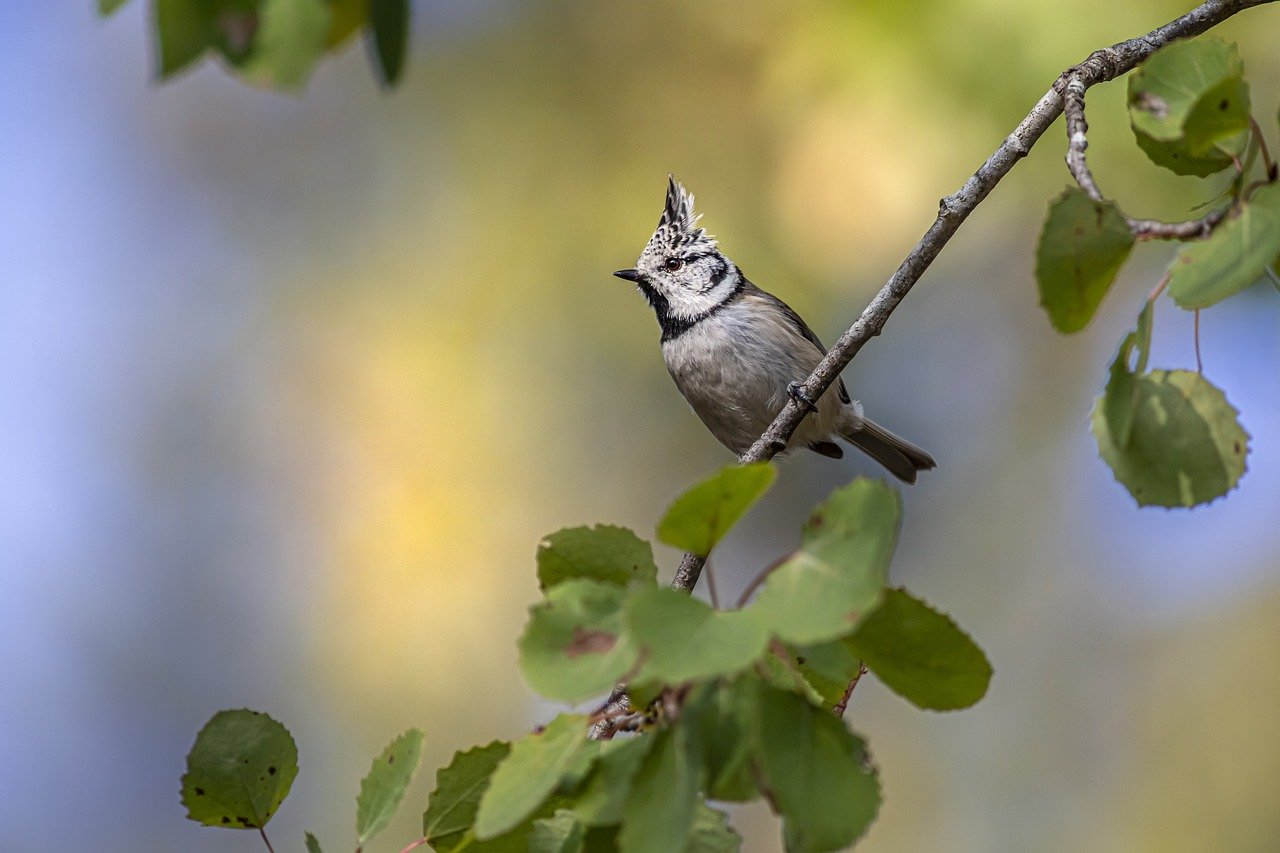The European Crested Tit, scientifically known as Lophophanes cristatus (formerly known as Parus cristatus), is a small passerine bird belonging to the family Paridae. It is widely distributed across Europe, inhabiting coniferous forests, mixed woodlands, and sometimes even urban parks with suitable tree cover.
This bird is easily recognized by its striking appearance. It has a distinctive black and white striped pattern on its head, with a conspicuous crest that can be raised or lowered depending on its mood. The body is primarily brownish-gray, with pale underparts and a short, stout bill.
European Crested Tits are agile and acrobatic foragers, often seen hopping along branches or hanging upside-down while searching for insects, spiders, seeds, and other small prey. They may also visit bird feeders, particularly in winter when natural food sources are scarce.
During the breeding season, which typically occurs from April to June, European Crested Tits construct their nests in tree cavities, using moss, grass, feathers, and other materials to line the nest. They typically lay a small clutch of eggs, which are incubated by the female.
While European Crested Tits are not considered globally threatened, they may face local declines due to habitat loss, especially the loss of old-growth forests with suitable nesting sites. Conservation efforts focused on preserving and restoring their woodland habitats are essential for ensuring the continued survival of this charming bird species.
Views: 1267
